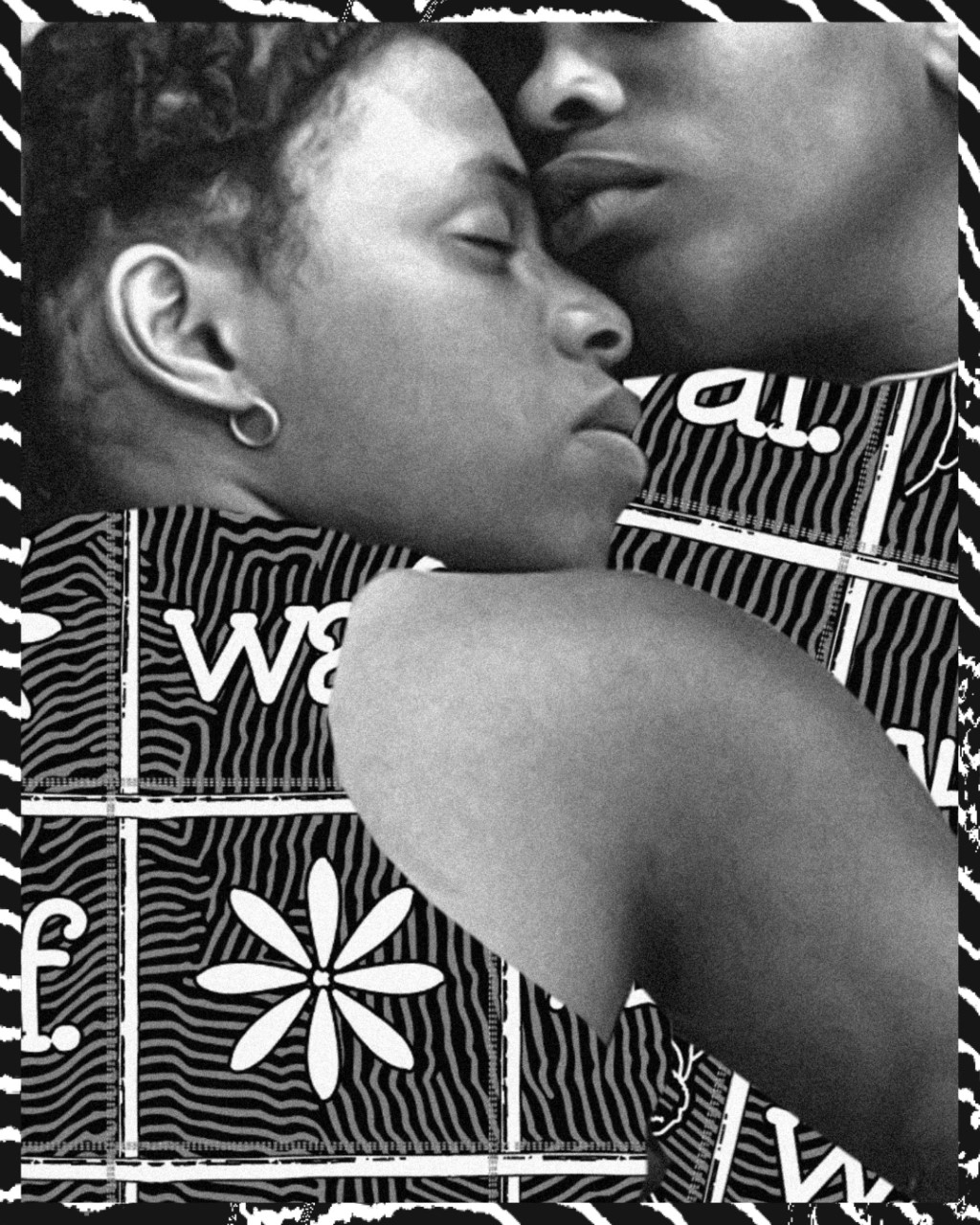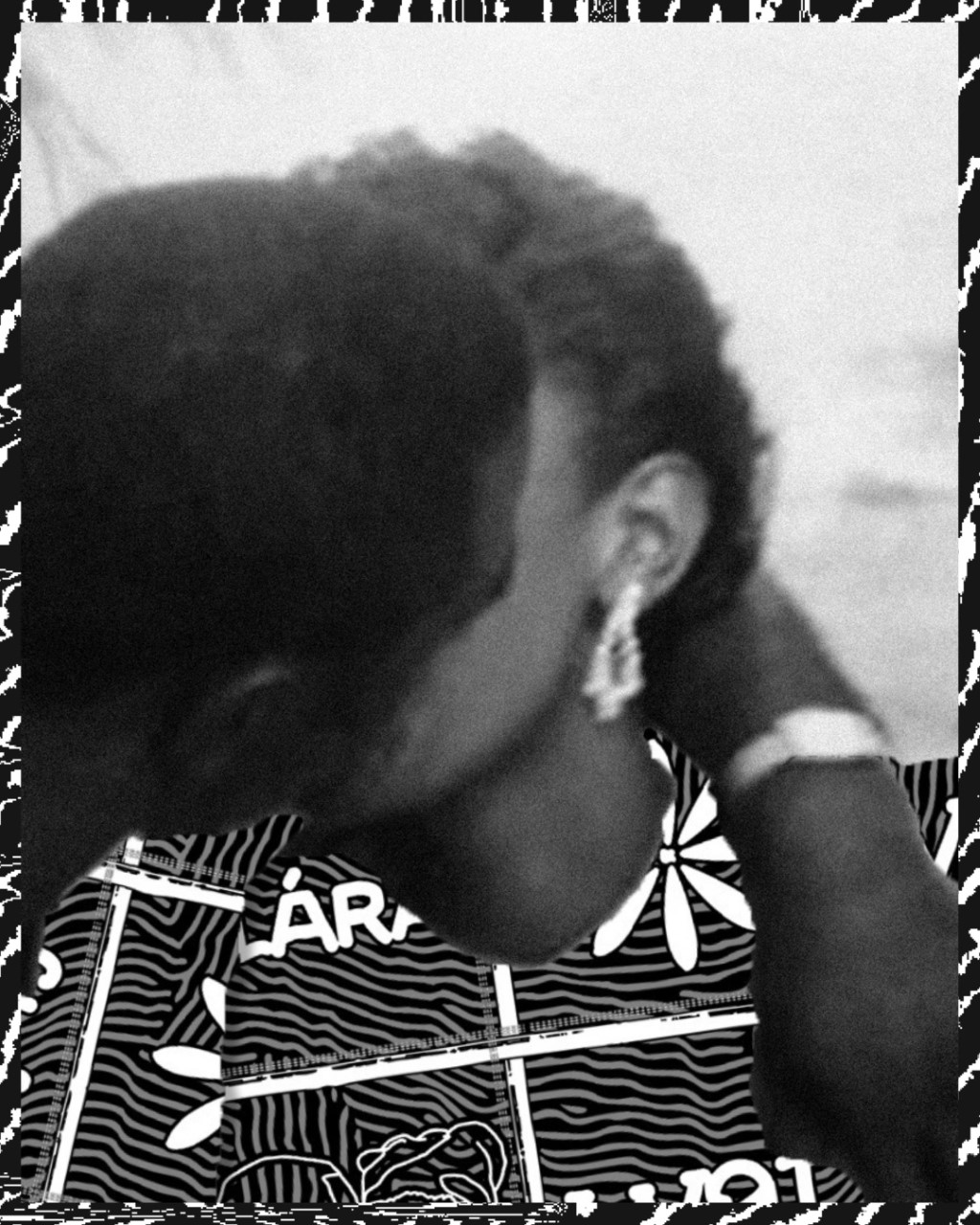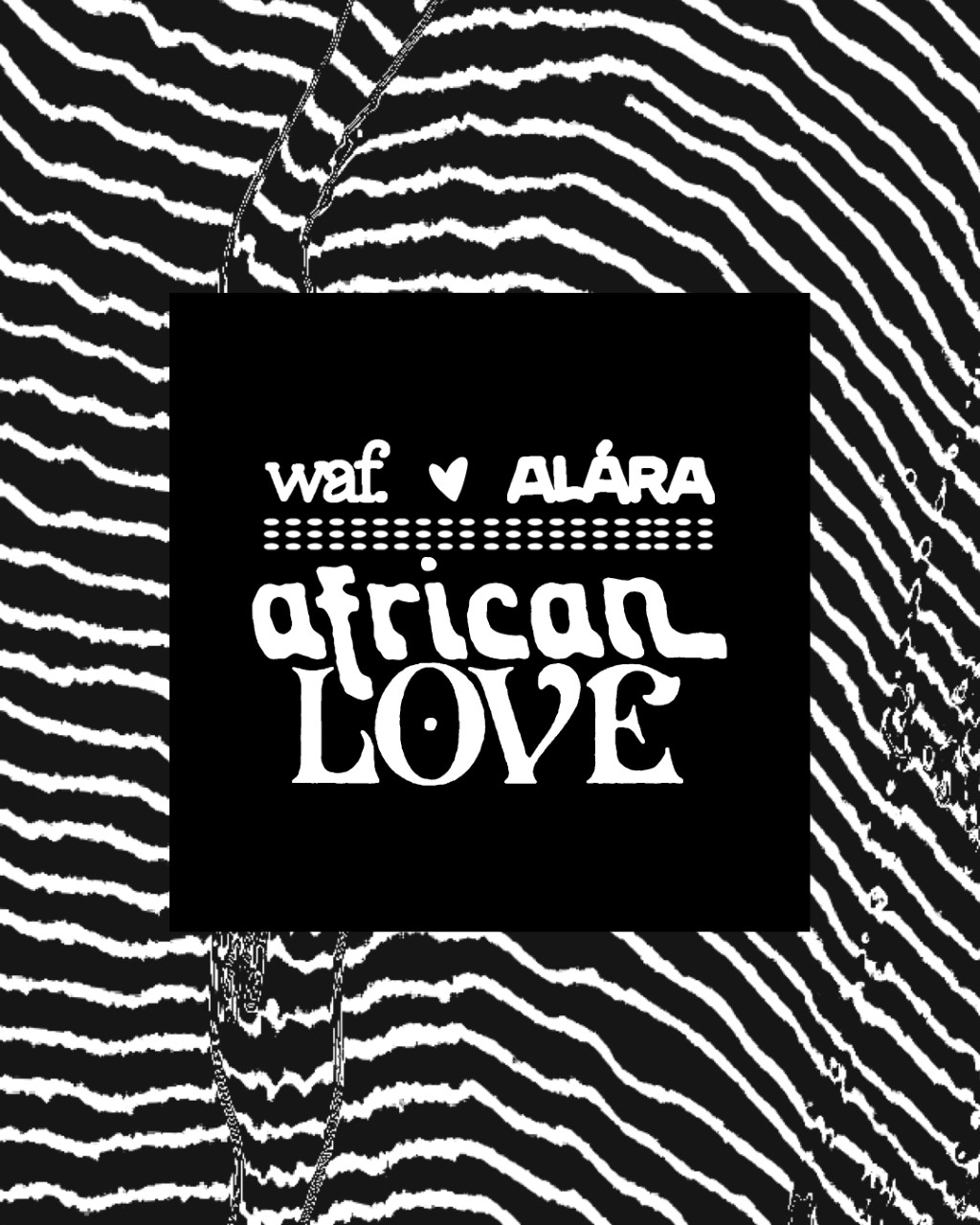From waf. & ALÁRA to Africa with love, welcome to the beginning of what are to be questions, statements and theories encouraging us to (re)narrate our stories and journeys with love on the African continent.
African Love is a waf. & ALÁRA multimedium fashion campaign that draws from the African continent’s relationship with clothing, tradition, and community to pay homage to the histories and rituals from which our affections and care derive.
Historically, fabrics and clothing have existed as sites of self-expression, celebration and unity and carrying on the tradition of looking to ourselves and each other for love and support, waf. & ALÁRA have collaborated on designing, retailing, and distributing a fabric on the continent. Alongside the fabric and apparel comes an expected podcast series and event later in the year to actualise the innate desire to tell stories, that both brands exist upon.
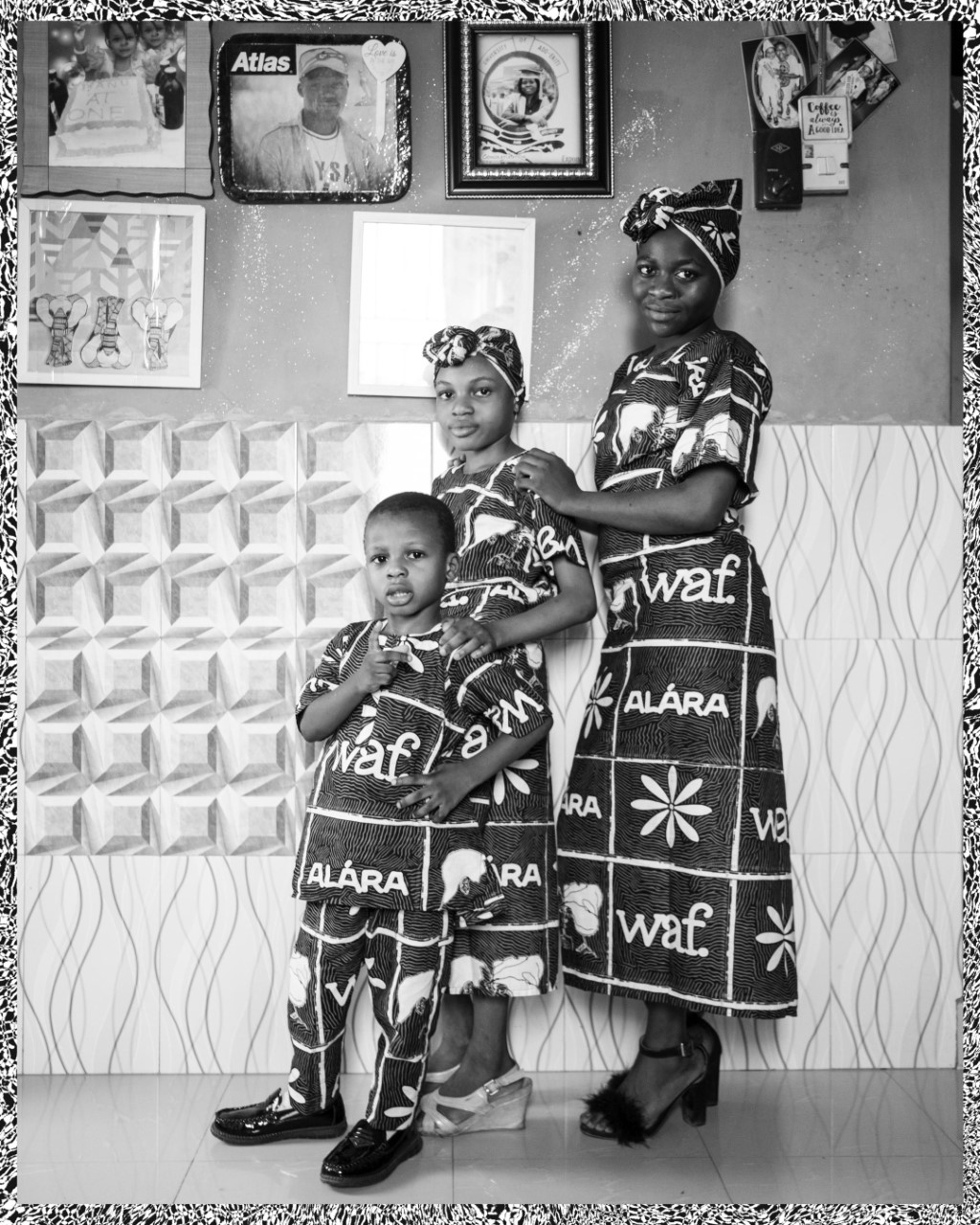
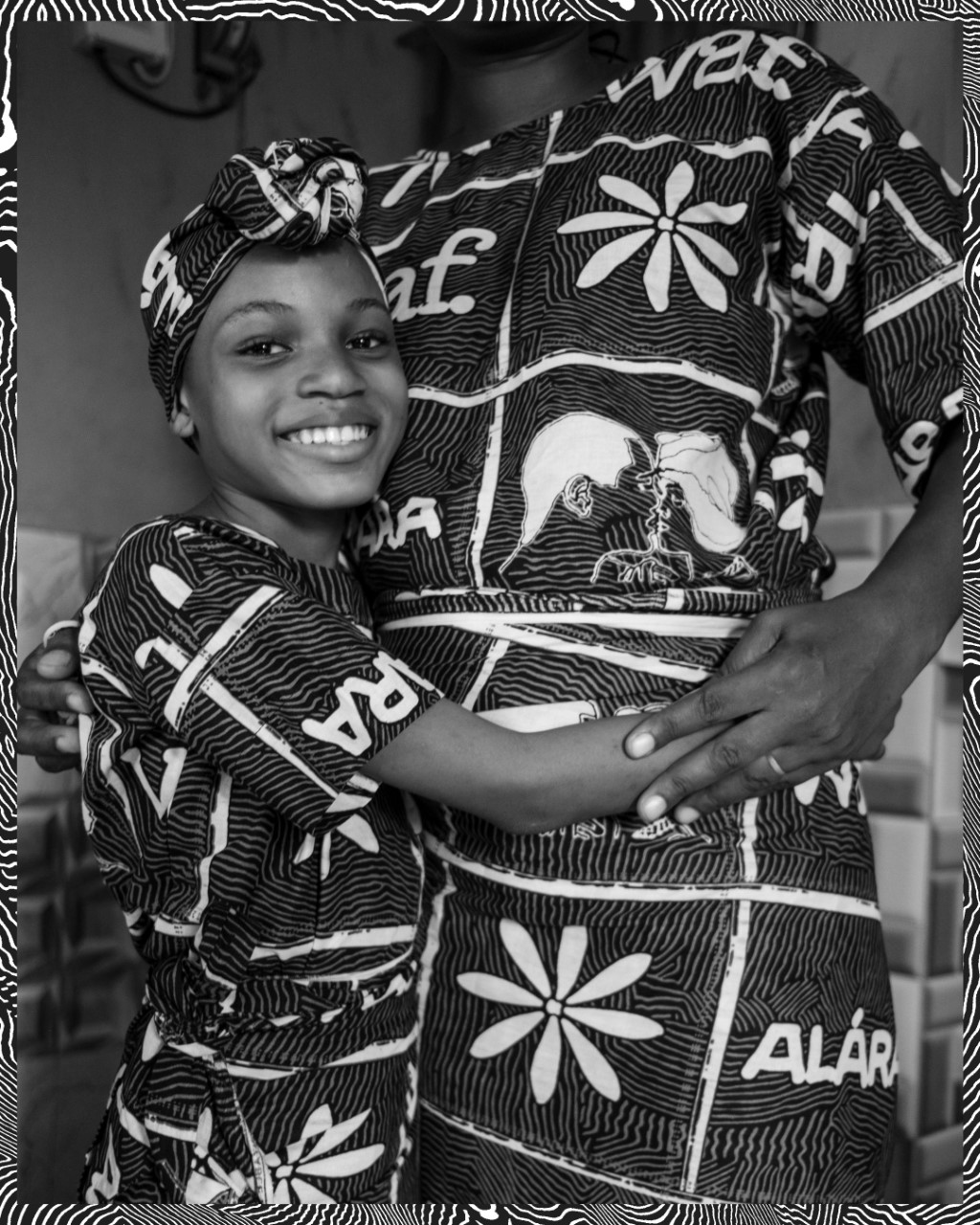
The fabric design is a combination of elements pertaining to African history – a silhouette of bamboo sticks; the scarifications of an Ethiopian, Mursi woman; northerners in Nigeria, and the cassava leaf – alongside hand-drawn logos of waf. & ALÁRA. African Love is a celebration centred around affection between African people, a love previously not recognised or acknowledged by global popular culture. There is a direct correlation between African love and the traditions we practice, as co-founder of waf., Jomi Marcus-Bello puts it:
In Nigeria, we have a uniform for love and togetherness, we call it ‘asoebi’ which directly translates to ‘family clothes’.
In Africa, fabric has always been a means of communication and solidarity to [express] things like love to a group of people. In our culture, the culture I understand and have been a part of, looking at the fabric someone is wearing can tell a lot about who they are and where they come from. So, the reasoning behind this is to continue this tradition and celebrate it as we imagine. It documents to the outside world that across our generation this practice happens on a regular basis. We’re simply highlighting the love between us as a [people].
waf. & ALÁRA are brands both rooted in the contemporary present and future, with an approach to creation and curation situated in African culture(s) and its people, looking towards practices of community as sites of reclaiming our histories – histories previously interrupted, spoiled and interpreted by prevailing historical actors, often those who pioneered systemic geopolitical inhumanities or otherwise became dominant forces in society.
Reni Folawiyo of ALÁRA, expands on the details of the relationship between clothing, tradition, communication and community:
From a community and tradition perspective, tapping into the asoebi narrative is about [sharing and receiving] a two-way gift. It’s the gift that you or someone is giving you to say you are part of this community and receiving your asoebi as a gift in one sense. Coming to the events or showing up is another gift. Showing up in those clothes is another gift, accepting your invitation to the community, saying, ‘I am part of it too. Not only am I part of it, in the communal sense, I’m also part of it in the individualistic sense, bringing my own flavour to it.’ I think with clothing, that’s what you want, you want to feel a part of something.
Led by a creative impulse to reimagine the aesthetics and feel of love and its future possibilities, the campaign also works to cultivate a space for audiences to experience African talent and creativity as designers from four regions on the continent have been chosen and paired to create with the fabric.
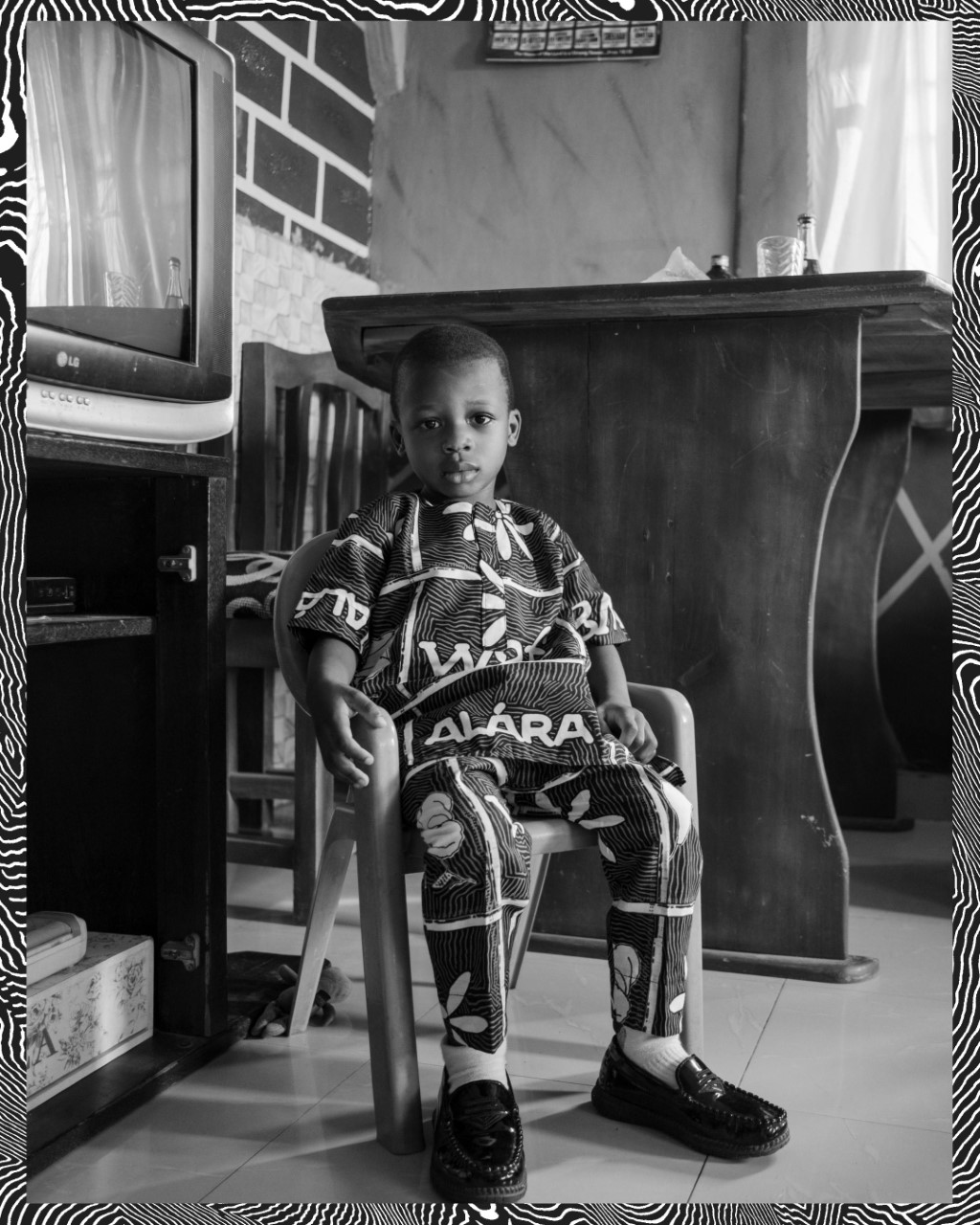
African Love invites thinkers/speakers — whose thoughts and experiences exist in conversation with African traditions and their socio-political and cultural histories — into African Love’s platforms as spaces to engage, think, feel and share from.
While “language can deform actualities” — other spaces of expression such as fashion — hold the capacity to “speak” truer truths of our stories. Perhaps, this is why fashion has also historically been a powerful medium of inciting change.
Lindiwe Mngxitama
What’s at stake is what’s always at stake. Who gets to tell the story? Who gets to tell what stories and how do they tell them? How do we make sure a narrative is not thrust upon us? How do we develop our own language of storytelling that is authentic and that can travel? That’s what’s at stake. It’s about making sure that we can be at the forefront of telling our own stories.
Reni Folawiyo
African Love fabric is now available at: www.wafflesncream.com
African Love episodes will be released on a monthly basis, with each featuring a different designer exploring African intimacy with a loved one from their own perspective.
Follow African Love on Instagram and Twitter
Love, waf. & ALÁRA
